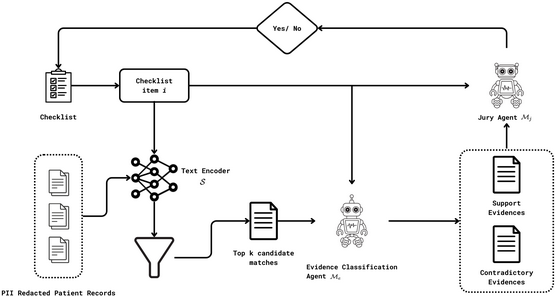AI-Powered Agents Achieve Medical Expert-Level Diagnosis in Cancer Prediction

AI Agents Break New Ground in Medical Diagnostic Accuracy
In a notable AI breakthrough reported on August 9, 2025, artificial intelligence systems have matched expert-level medical analysis in complex cancer prediction tasks—a milestone that highlights AI’s evolving role in healthcare[4]. These new advances allow AI agents to reach an AUC-ROC (area under the receiver operating characteristic curve) of 0.761 in predicting prostate cancer recurrence, a performance metric comparable to trained clinicians and considered highly promising for real-world deployment[4].
How Collaborative AI Teams Outperform Traditional Models
Recent research showcases the rise of multi-agent systems that use specialized teams of AI, such as the SNOW architecture, to autonomously generate and interpret clinical features[4]. By distributing subtasks among coordinated digital experts, these systems unlock a deeper synthesis of patient data and medical history, moving beyond the limitations of single-model approaches. The result: improved diagnostic accuracy and faster, more reliable clinical decision-making.
Tackling Real-World Medical Challenges—and Their Uncertainties
AI-powered frameworks like ReflecSched, now benchmarked in medical tasks, have been shown to outperform classic optimization techniques in scheduling complex procedures by over 70%[4]. Separately, temporal knowledge systems (e.g., T-GRAG) demonstrate a sophisticated understanding of evolving patient records, while uncertainty-aware models reliably identify when their predictions may be off-base—a key trait for trustworthy AI deployment alongside human practitioners.
Implications: Toward Safer, Faster, and More Accessible Healthcare
These advances are already translating into clinical settings: from rapid cancer recurrence modeling to supporting diagnosis and prognosis for diseases where expert human knowledge is scarce. Industry specialists note this represents a substantive transition for AI—from tools that summarize text, to robust reasoning engines that can assist in life-or-death medical calls. While some challenges remain—particularly in quantitative reasoning and transparency—the momentum in healthcare-oriented AI innovation is clear.
The Road Ahead: What Experts Predict
As the field moves forward, experts foresee even greater synergy between human clinicians and collaborative AI teams, driving new opportunities for telemedicine and personalized treatment[4]. Leading medical AI researchers emphasize the need for rigorous evaluation and responsible adoption but agree that these systems are positioned to reshape diagnostic practice, streamline healthcare delivery, and extend expert-level analysis to previously underserved patients.
How Communities View AI’s Leap in Medical Diagnosis
The recent demonstration of AI agents reaching medical expert-level performance in cancer prediction has sparked intense discussion online. Debate surrounds not just the technology’s capabilities but also its impact on clinicians, patients, and healthcare infrastructure.
Key opinion clusters:
- AI as a Diagnostic Revolution: Many users on r/MachineLearning and X (e.g., @health_ai_leader) celebrate this as proof that AI can relieve some burden from healthcare providers and reduce costs, with several comparisons to the historical impact of radiology tools.
- Skepticism and Transparency Concerns: A substantial group, particularly healthcare professionals on X (@drlauraclinic) and r/medicine, stress that while impressive, AUC scores below 0.8 may not suffice for clinical deployment. They call for greater transparency and validation in real-world hospital trials.
- Patient Access and Ethics: Communities in r/futurology and X (#AIHealthDebate) highlight concerns about biases in training data, the risk of AI-driven disparities in diagnosis for underrepresented groups, and the crucial role of human oversight in ethical AI decision-making.
- Industry Endorsement: Experts like @andrewyng and @DrEricTopol comment that these results foreshadow a future where humans and machines routinely collaborate, with optimism tempered by calls for strict safeguards and policy frameworks.
Overall Sentiment: The tone leans cautiously optimistic—many believe this is an inevitable step toward augmented healthcare, but balanced by reminders that patient safety and equitable access must remain top priorities.